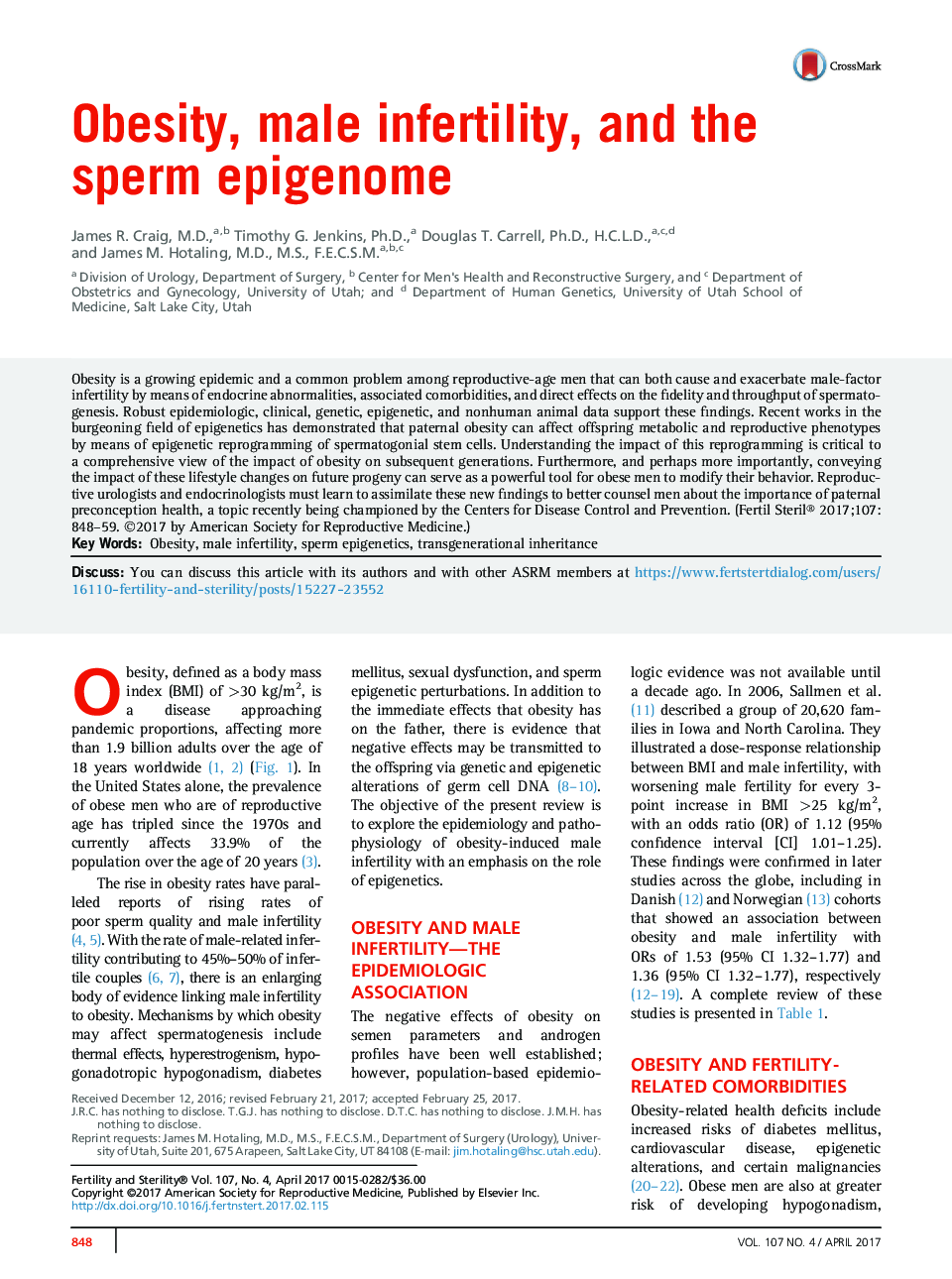| Article ID | Journal | Published Year | Pages | File Type |
|---|---|---|---|---|
| 5693835 | Fertility and Sterility | 2017 | 12 Pages |
Abstract
Obesity is a growing epidemic and a common problem among reproductive-age men that can both cause and exacerbate male-factor infertility by means of endocrine abnormalities, associated comorbidities, and direct effects on the fidelity and throughput of spermatogenesis. Robust epidemiologic, clinical, genetic, epigenetic, and nonhuman animal data support these findings. Recent works in the burgeoning field of epigenetics has demonstrated that paternal obesity can affect offspring metabolic and reproductive phenotypes by means of epigenetic reprogramming of spermatogonial stem cells. Understanding the impact of this reprogramming is critical to a comprehensive view of the impact of obesity on subsequent generations. Furthermore, and perhaps more importantly, conveying the impact of these lifestyle changes on future progeny can serve as a powerful tool for obese men to modify their behavior. Reproductive urologists and endocrinologists must learn to assimilate these new findings to better counsel men about the importance of paternal preconception health, a topic recently being championed by the Centers for Disease Control and Prevention.
Related Topics
Health Sciences
Medicine and Dentistry
Obstetrics, Gynecology and Women's Health
Authors
James R. M.D., Timothy G. Ph.D., Douglas T. Ph.D., H.C.L.D., James M. M.D., M.S., F.E.C.S.M.,
